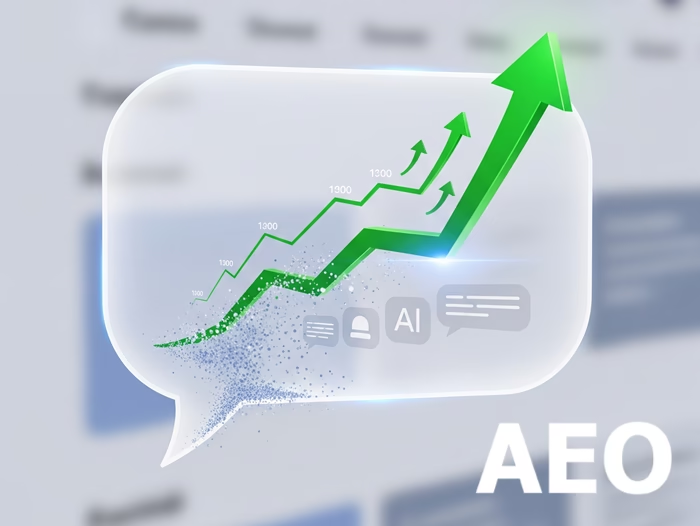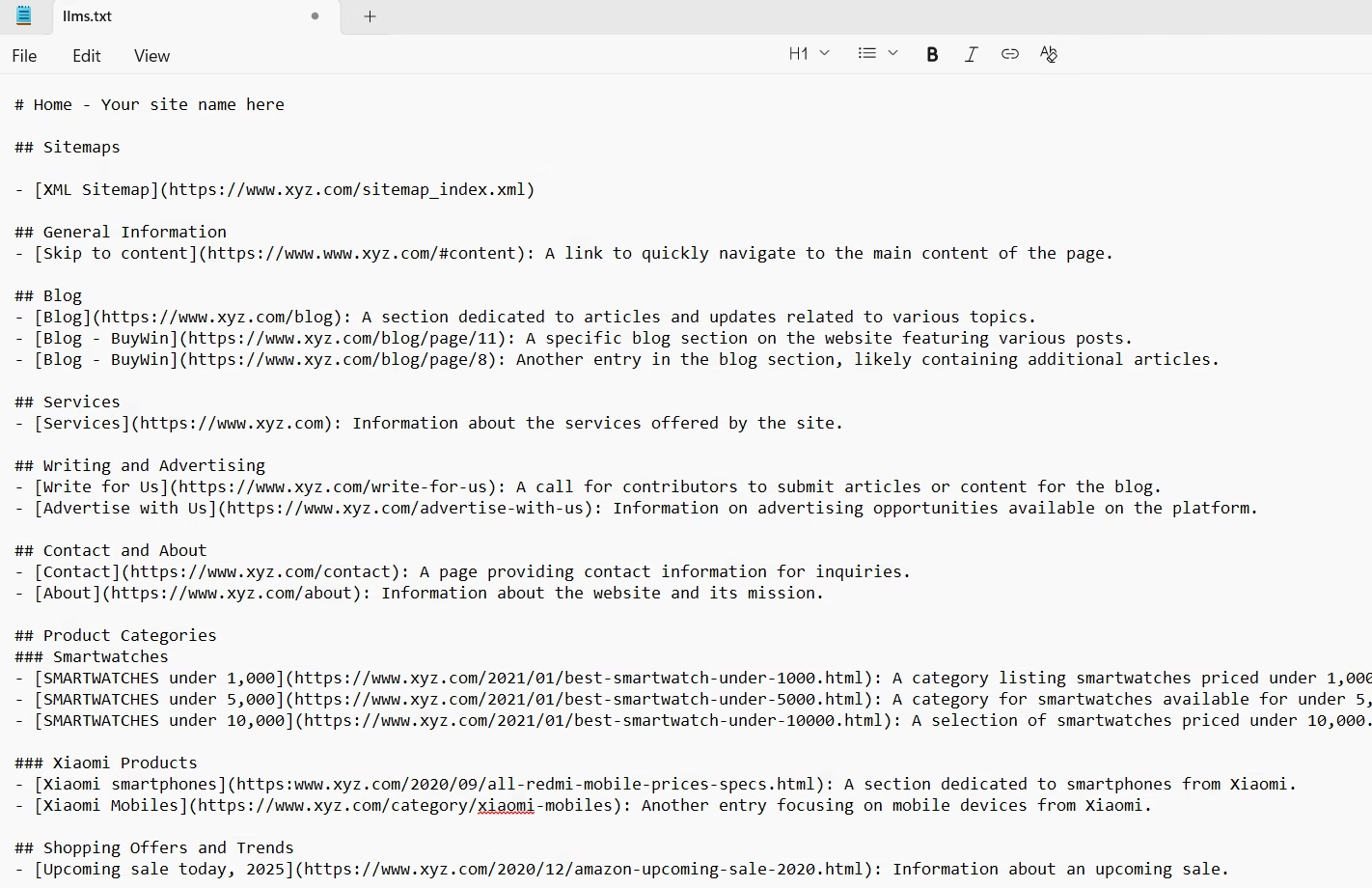
Key AEO strategies are the essential processes a website owner or marketer should know to promote their brand names or products, or get cited in the answers of AI tools like ChatGPT, Perplexity, Claude, Google AI overviews, etc. Those who have learnt these key tactics can use advanced AEO skills.
AEO is a new technique used by savvy marketers to increase website traffic, in addition to traditional SEO. It stands for Answer Engine Optimization. Popular LLMs like ChatGPT, Perplexity, Claude, and Google Gemini now have integrated web search and research capabilities. It means that one can use these AI tools to search for anything online without traditional search engines like Google and Bing. So, featuring their products or services in the AI answers is increasingly important for marketers and website owners today. It means that AI models can also drive traffic like Google and Bing to your website for free.
Hence, AEO is also known as GEO (Generative Engine Optimization). Some others call it LLM SEO.
After the term AEO entered the online marketing mainstream, I took some courses to learn about it. This article is about AEO techniques I learned from those courses. I hope you will enjoy reading it. By understanding these fundamental AEO strategies, you can create advanced or personalized strategies tailored for your site.
Key AEO Strategies and Tactics
1. Create an llms.txt file
This file is similar to robots.txt, which you already have on your website. But, you have to create llms.txt specially for AI bots to find your content for their answers. You can create the file manually or by using a good llms.txt generator available online. Manually, you can create it in the following way:
- Open Notepad on your computer and save it with the filename llms.txt. (The filename should be llms with the extension .txt)
- The content in the file should be written in Markdown format. Here is a sample below:
- Like in the sample, write your site name and replace www.xyx.com URLs with your real website URLs. It’s all about including your important site URLs for AI tools to crawl. If confused, use an online llms.txt generator. It creates one for you automatically.
- Save the file. Then, upload it to the Public_HTML folder of your hosting server, where robots.txt exists.
2. Join Reddit
AEO experts suggest joining Reddit. According to them, major LLM tools, including ChatGPT, pull up the latest posts from Reddit. On Reddit, start conversations about your brand, products, or services. Make Reddit users discuss the benefits you offer. Engage with users and build trust.
Find sub-Reddits related to your niche and get involved. In short, try to boost your brand awareness and build genuine connections. It is up to your marketing skills within Reddit’s terms.
3. Be good with SEO
Traditional SEO still matters. You should be good at keyword research, especially finding long-tail keywords and conversational queries that match what people are looking for. Understand the user intent of the keywords so that you can create quality, relevant content.
Invest your time in on-page SEO – making catchy titles, engaging meta descriptions, well-structured headers (H1, H2, H3), and Alt text optimizations.
Don’t forget to create timeless content that is relevant to readers all the time. That is something like “Top 10 books for …”, “Best courses for … according to experts”, etc.
Improve user experience. It is all about making your site easy to use. It includes making mobile-friendly, fast page loading, and easy navigation. In short, make your visitors happy and engaging. Strong SEO practices increase better chances of AI tools picking up your content.
If you still need to learn SEO on a deeper level, check these courses out.
4. Write authoritative content
An authoritative content is well-rounded content that provides quality signals. Such content often ranks higher in search engines. They also have greater chances to get picked by answer engines (AI tools). To make your content authoritative, you can use relevant statistics, something like “65% of customers buy the product after they view its review on YouTube”.
Your statistics should be contextually relevant to your topic at hand and enhance your narrative. You can use visual representations like charts and graphs to illustrate the statistics. If needed, cite reputable sources to enhance credibility.
5. Create content that AI can’t replicate
You create content investing efforts. But what if it ends up with AI overviews (for example, Google AI overviews) without getting a click to your website? It is known as zero-click searches. Here are some tips to create content that AI can’t replicate:
- Create content highlighting the human side of your brand. For example, create a case study of your company on how you value your customers, highlighting testimonials.
- Create a short video of an important person or your team that builds trust and connects audiences emotionally.
- AI can’t conduct original research with fresh insights. Publish original studies, whitepapers, and data-driven reports to position your brand as a thought leader.
6. Build relationships with reputable media outlets
This approach is also beneficial to traditional SEO. Think about media outlets like the Associated Press, newspapers, and even Reddit. Consider writing something like an article as an expert in your field for a well-known publication.
Another way is to publish high-quality, research-based content on your site that they would want to cite as a reference. You can also partner with a media organization to co-host a webinar. It is a great way to reach a wide audience. AI tools often discover such content and get featured in their answers.
7. Find related questions
People seek answers from ChatGPT, Google Gemini, Persplexity AI, etc. Find questions most people ask related to your brand, products, or services. Try typing your brand name or product in Google’s search box and see if any question-based phrases pop up.
You can also see “People Also Ask” (PAA) for related questions in Google search results for your keywords. Alternatively, you can use an SEO tool like Semrush or Answer The Public to source related questions. Then, create content with direct answers.
8. Use Structured Data
Implement structured data like Schema Markup for your content. It makes AI understand the content easily.
You can add FAQ sections to your pages. Or create content that you can implement the FAQPage and HowTo schema.
9. Strong E-E-A-T signals matter
You might have heard about E-E-A-T in traditional SEO. E-E-A-T stands for Experience, Expertise, Authoritativeness, and Trustworthiness. Strong E-E-A-T signifies quality content for readers. Answer engines prioritize trust and accuracy. AI models and answer engines are designed to pick the most reliable and comprehensive answer to a user’s question.
Here is an article on E-E-A-T. Read it
10. Write in a conversational tone
Large Language Models (LLMs) try to mimic human speech or leverage natural language processing. They are trained on vast amounts of human text, including conversations, social media, and everyday speech. If you write content in a conversational tone, it will be a suitable source for their answers. Here are some tips:
- Write like you speak. Make it more natural.
- Write it around questions your audience might ask and give direct answers.
- Focus on long-tail keywords; they are conversational queries.
- Avoid jargon as possible since they are hard to read.
- Find conversational queries from Google’s “People Also Ask” and “Related Searches” and use them if relevant.
These are some of the key AEO strategies and tactics to get mentioned in AI answers and Google AI overviews. If you are already experienced in SEO, I think you know how these strategies work. But, if you want deeper insights on AEO and its optimization techniques, here are the courses I took and other courses I want to recommend:
Check out these best AEO courses.
You can also read AEO books on Amazon.
Disclosure: We are partners or associates of Amazon and other top brands. We may earn a small amount from qualifying purchases without increasing the price. Please read our full affiliate disclosure here.
Ibochouba Singh is a content writer and reviewer with a passion for writing about digital marketing and tech gadgets, including software tools and new tech gadgets. He has over 15 years of experience writing for several consumers and clients, including tech startups, marketing agencies, and software companies. He has written many articles and product reviews for many websites, including nigcworld.com and 99learners.in.

